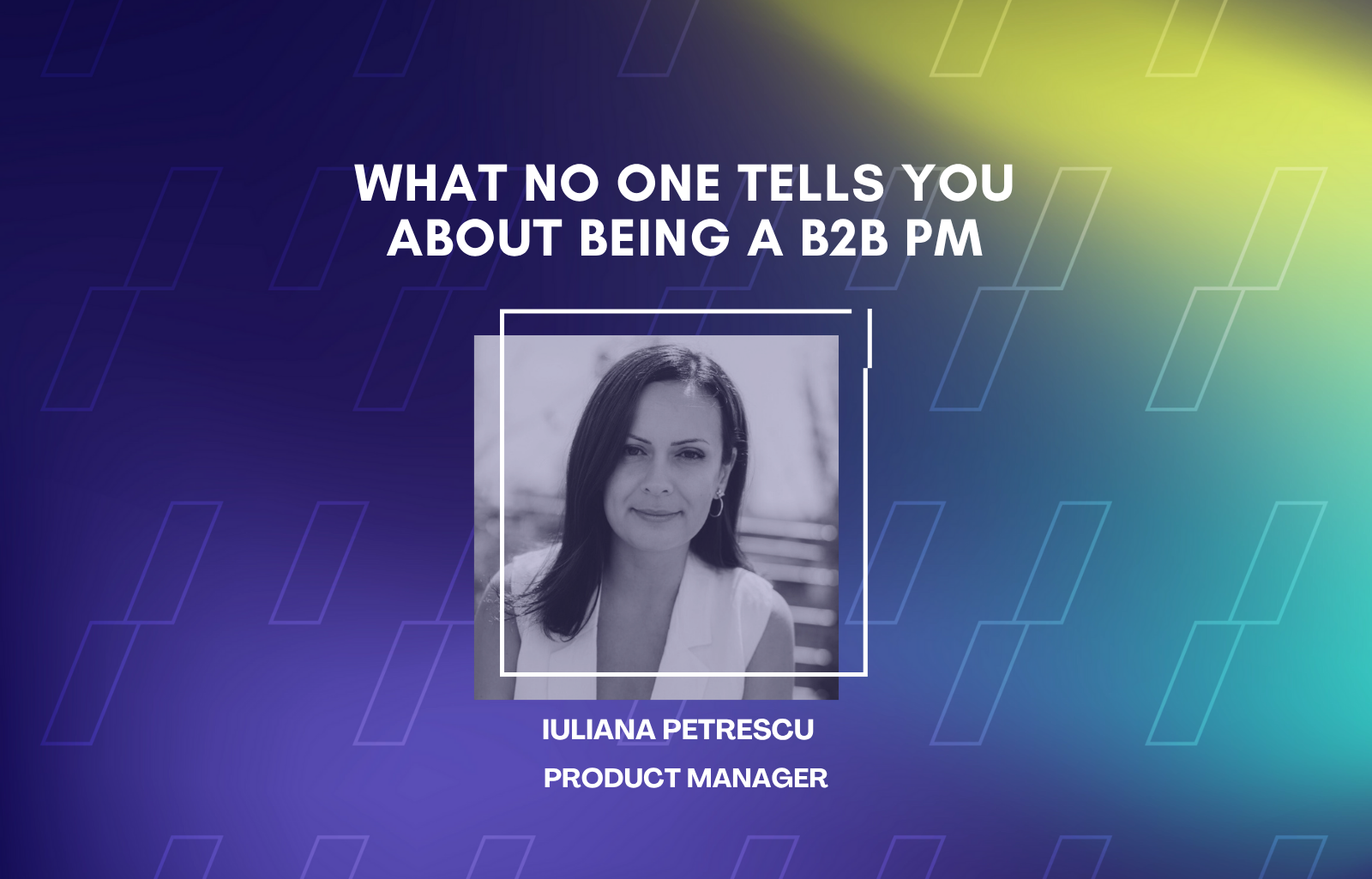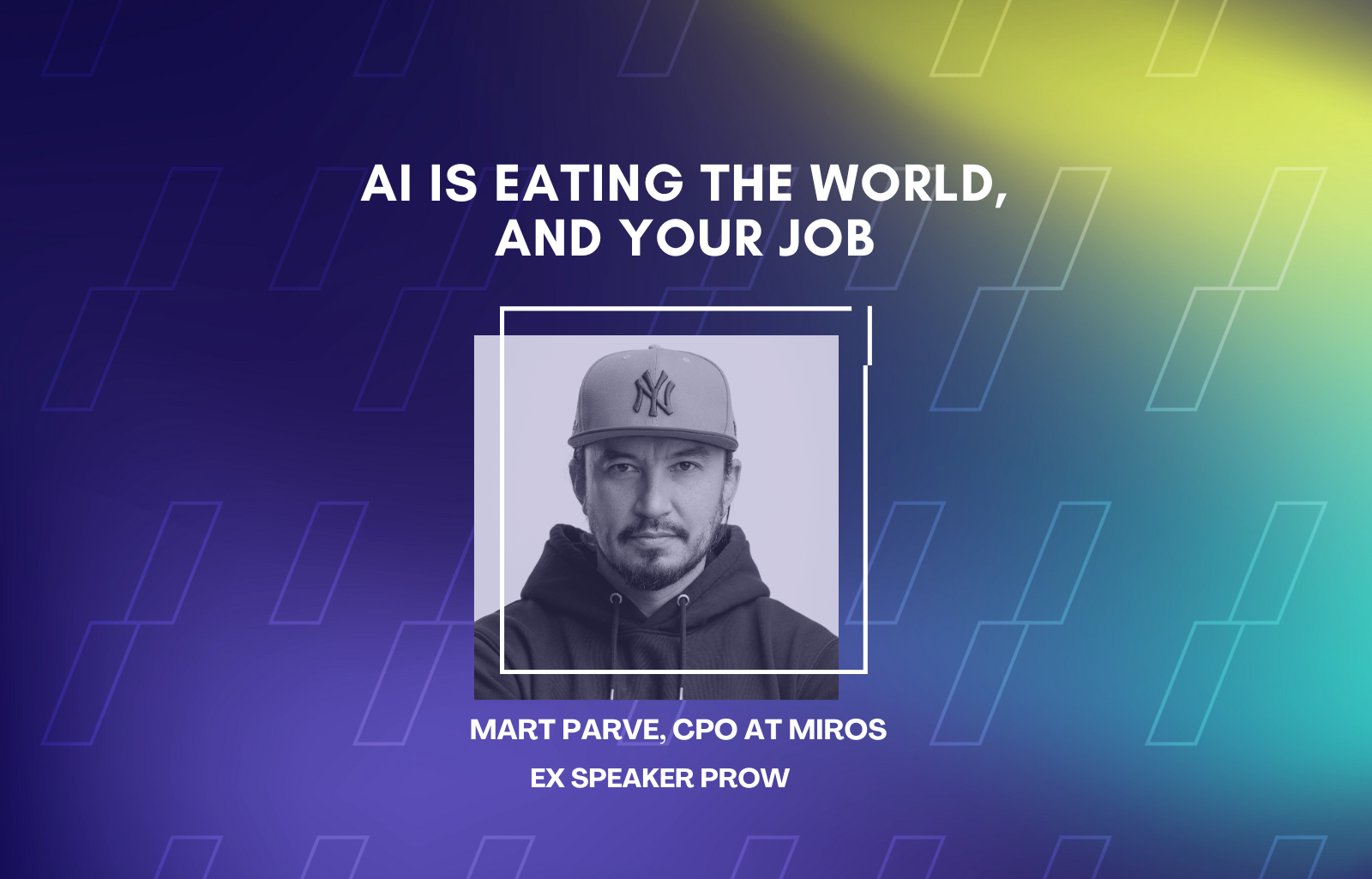AI is Eating the World, and Your Job
Mart Parve, CPO at Miros
AI is rapidly changing how digital products get built. The technical work is being sped up and assisted, soon outright replaced. For both PMs and engineers, this raises the same hard question: when execution is no longer the bottleneck, what exactly is your edge?
The Story: Tickets, Projects, and Cathedrals
You’ve likely come across headlines proclaiming “the death of the Product Manager.” In some tech orgs, PM responsibilities are being absorbed by engineers, designers, or even marketers. While still the exception, this shift could signal where we’re headed.
Let me start with a story. A person walks up to a construction site and asks the workers who are all laying bricks, “What are you doing?”
The first replies, “I’m laying bricks.”
The second says, “I’m building a wall.”
The third answers, “I’m building a cathedral so people can gather, feel uplifted, and celebrate the divine.”
Anyone who’s worked in product or engineering will recognize this metaphor. “Laying bricks” is a ticket. “Building a wall” is a project. “Building a cathedral” is the ultimate value.
AI Wants to Know: What’s Your Cathedral?
For years, strong product and engineering leaders have pushed teams beyond the ticket level, encouraging them to connect with the broader purpose behind their work and contribute to the value more directly. The goal: shift the mindset from tickets to outcomes, to have a tighter value delivery against actual user problems.
That shift is no longer optional. With AI accelerating fast, the act of writing code, designing UX, setting up infrastructure, etc. (the “how” of digital product development) is on its way to being commoditized. Sure, it’s easy to dismiss AI-assisted coding today as “vibe coding”, flaky in production. But the trajectory is undeniable: AI is improving fast, and it’s not going away.
The Threat to Product Managers
As a Product Manager, you should take notice. An engineer with a strong product mindset can increasingly take up the PM’s job, after quickly completing their own job. They can identify user problems, then apply the perennial cognitive strengths of engineers - structured thinking, logic, problem solving - to ship working solutions. All without waiting for your PRD, or your rambling on a grooming session. The emergence of mega-successful solo founders we’ve seen recently is the beginning of this.
The Implication for Engineers
This matters for engineers as well. Raw technical execution is losing its edge as a differentiator. Simply writing solid code and shipping clean tickets won’t cut it in a competitive market, nor bring along a fulfilling, well-compensated career.
So… What Now?
If we accept everything above, what’s actually actionable? Truth is, I don’t have definitive answers, just a few thoughts. Hopefully, you’ve got better ones. But here’s where I’d start:
1. Build Soft Skills and World Understanding
The best builders of value I know read fiction (my pick: Murakami), play music, travel, and talk to people outside their bubble. Real value creation is more anthropology than engineering. It’s about understanding people: how they feel, what drives them, and why they do what they do. Only then can you build things that matter.
2. Study Economics
If I had to pick one lens to understand how people interact with products, it’s economics: the science of maximizing well-being under scarcity. People who study economics know the principles stretch far beyond money or formal transactions. Wherever people interact with each other or with products, the principles of economics are in play.
3. Normalize True Product Engineering
If you’re a tech leader, build a culture where engineers own outcomes, not just deliverables. Ditch project or ticket thinking. Run on outcome-based roadmaps. Let people directly chase and achieve meaningful goals. Hire people who want to solve problems, not just write code.

